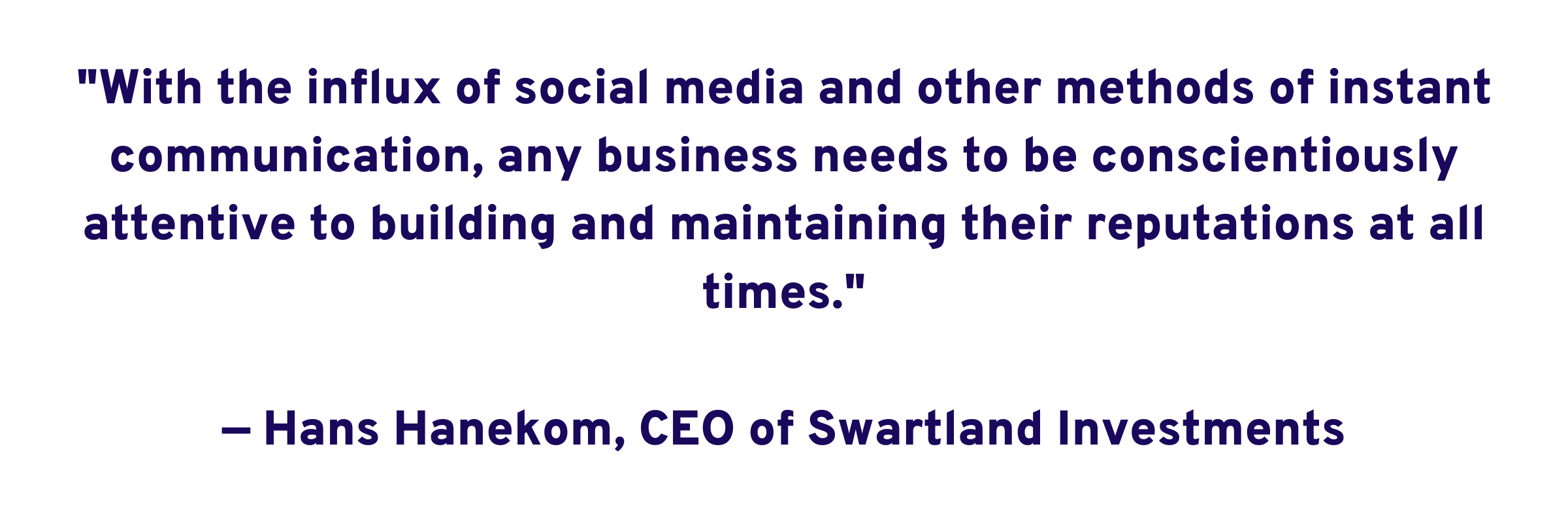Millennials Are Shifting CSR From Bonus To Necessity
25th Oct 2021

A guest feature, written and originally published by Matchable.
YOUNG PEOPLE CARE MUCH MORE ABOUT THE CULTURE AND REPUTATION OF YOUR ORGANISATION THAN THEIR PREDECESSORS. FORGETTING THAT WILL HARM YOUR BUSINESS!
Millennials (born 1981-1996) and Gen Z (1997-2012) are changing the way we think about business and consumer culture. No longer are salaries and career trajectories the only important thing when choosing employment, and cheap and reliable products are no longer the only thing consumers are looking for. Being socially responsible, having a good reputation, and doing good for wider society are now major players for both professionals and customers when choosing employers and products.
In five years time, 75% of the workforce will be either Millennials or Gen Z. In just four years time 30%, will be Gen Z. The importance of recognising generational differences in what they are looking for from an employer and producer is of fundamental importance to your business. Corporate Social Responsibility (CSR) is already a major aspect of business culture, and its significance will only increase.
What is corporate social responsibility?
CSR schemes are designed to improve the social and environmental impact of companies, demonstrating that they care about the wider community. This can take a number of different forms, whether it be working in soup kitchens, painting schools, or using your skills to benefit impact organisations. Here at Matchable we specialise in the latter, aiming to match companies and their employees with tailored projects at non-profits and impact startups.

Employee attraction: quality and quantity
Employee attraction is important to any business. If an organisation can attract more applications, they will have a larger pool to choose from and therefore will most likely obtain better employees. In a study done by Daniel Hedblom and Brent R. Hickman, they found that people were 26% more likely to apply for jobs if CSR was mentioned in the description compared to identical jobs where it was not mentioned. Furthermore, 64% of Millennials say they would not accept a job at a company they deem to be not socially responsible. By ignoring CSR, a business will be potentially losing out on a large pool of intelligent and talented Millennials.

In the coronavirus world of high youth unemployment, with nearly 1,000 applications coming in for receptionist jobs in 24 hours, one might suggest that incentivising more applications is unnecessary. However, it is not just the quantity of applicants that CSR produces, but quality too. Those who accepted a job where CSR was mentioned in the description in Hedblom and Hickman’s study were more productive in the tasks they were given. This was especially prevalent amongst women, who were 40% more productive, and worked an hour more per day. Therefore CSR makes sense for businesses because it helps to attract the best talent. Those who are attracted to companies with a strong CSR culture were on average more productive and harder working.

Employee retention
The link between a prevalent CSR culture and employee retention is also significant. A report by Benevity Inc. showed that workplace turnover is reduced by 57% when employees volunteered their time and donated money to charity compared to when they did neither. CSR was shown to have a direct result on employees staying at their companies. This is fundamentally important to businesses of all sizes. Total costs of losing and having to replace an employee can be as much as 1.5 to 2 times the individual’s annual salary. US companies alone are estimated to lose $160 billion every year due to this employee turnover. Keeping employees satisfied at your organisation by introducing CSR projects is therefore incredibly cost-effective.
Business reputation and CSR
CSR is an integral part of an organisation’s overall reputation. Analysis shows that an individuals willingness to buy, recommend, work for, and invest in a company is driven 60% by reputation, and only 40% by the quality of products and services it sells. As the study also showed that 41% of how people feel about a company is based purely on the firm’s CSR practices, it is evident that CSR is not only beneficial, but essential for businesses.
Reputation is important for employees
The reputation of a company is more important for Millennials than any other previous generation. Almost 9 out of 10 Millennials would consider working for less if they think the values of the company are aligned with their own. By comparison, less than 1 out of 10 people born between 1946 and 1964 agree. Looking at this from another angle, 70% of all working professionals would reject a job at a top employer if the company was known to have a bad workplace culture. So perceptions of the company culture are of such importance to professionals, especially Millennials.

Reputation is important for customers
The importance of reputation is not just limited to employees. 91% of Millennial consumers would switch brands to one associated with a cause they care about, and 70% would be willing to pay more for the product. Boycotts of companies with poor reputations is becoming a norm with Millennials. Social media has completely changed the game of boycotting, with one hashtag campaign or Facebook group can get the attention of national media, and so boycotts are much easier to organise. Having a good reputation can prevent this negative attention. It helps avoid the ‘ethical blowback’ that occurs when companies do not appear to care about wider society. Getting your company involved in CSR projects are a sure-fire way to obtain a positive reputation for consumers.

CSR can no longer be seen as just a ‘nice thing to do’. It is essential for your business to take it seriously. Whether it be for the quantity and quality of applicants, employee retention, or reputation, your business will financially benefit from implementing CSR projects. The fact that 90% of the 250 largest global companies by revenue now publish detailed annual reports on their CSR practices exemplifies that it is no longer just an added extra. Companies now need to take it seriously. This is also not just a fad. It will almost certainly increase in significance. Gen Z, which will make up almost a third of the workforce in 4 years time, are the first generation to actually prioritise purpose over salary. CSR is a certified way to increase this purpose in the workforce. CSR is already vital, and it’s going to get even bigger.
Sources
How CSR can help your Business, Workspace
Millennials Would Earn Less to Work at a Sustainable Company, Fast Company
Nearly 9 out of 10 Millennials Would Consider a Pay Cut to Get This, CNBC
The Companies with the Best CSR Reputations, Forbes
Why Corporate Social Responsibility can Backfire, Chicago Booth Review
The Importance of Corporate Social Responsibility, Financier Worldwide Magazine
Worker Turnover Drops 57% When Giving, Volunteering Encouraged, The NonProfit Times
The Importance of Business Reputation, ExpertHub
Millennials are Driving Interest in Sustainable Investment, Hi4CSR
If you'd like to learn more about Matchable and their approach to Flexible Working, be sure to check out their Company Page!